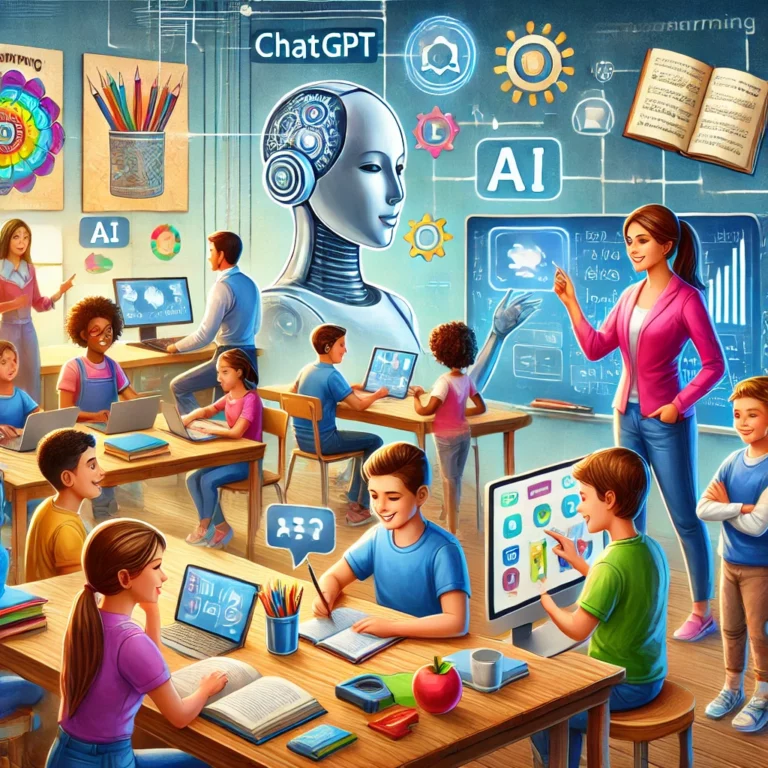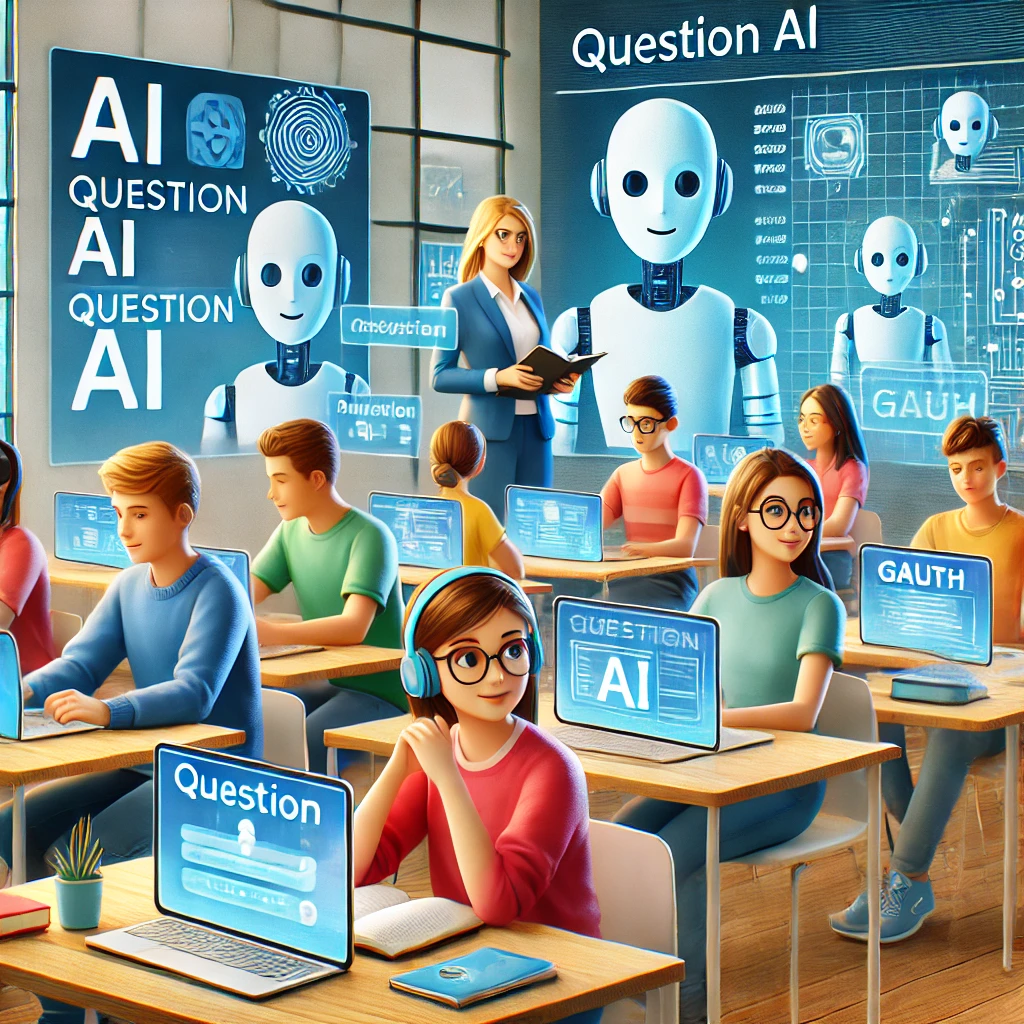Introduction
Homeschool educators are 35% more likely than schoolteachers to support using ChatGPT in K-12 education. The rise of artificial intelligence (AI) in educational settings is transforming the way educators approach teaching and learning. ChatGPT, a state-of-the-art AI language model, is gaining traction among homeschool educators and traditional schoolteachers alike, offering innovative solutions and presenting unique challenges.
In this blog post, we will explore the perspectives of both homeschool educators and schoolteachers regarding the use of ChatGPT in K-12 education. We will discuss its potential benefits, particularly for students with special needs, and its role in preparing students for technology-based careers. Additionally, we will address the concerns surrounding academic integrity and the moral dilemmas posed by advancing technology.
Support for ChatGPT in Education
Homeschool Educators’ Perspective
Homeschool educators are 35% more likely than schoolteachers to support using ChatGPT in K-12 education. This support stems from the flexibility and personalized learning experiences that AI can provide. Over 1 in 4 homeschool educators said they have used ChatGPT to help their child complete their homework. These educators appreciate how AI can tailor educational content to meet individual learning needs, making it an effective tool in a homeschool setting.
Moreover, 44% of homeschool educators used ChatGPT in their home schoolroom and felt it benefited them and their students. The ability to access instant information, generate engaging lesson plans, and provide immediate feedback are some of the reasons why homeschool educators find ChatGPT advantageous. An impressive 68% of home educators felt ChatGPT would prepare students for technology-based careers, highlighting the importance of integrating AI into their curriculum.
Schoolteachers’ Perspective
Schoolteachers believe using ChatGPT will prepare children for technology-based careers. The integration of AI in the classroom equips students with essential skills for the future workforce. Schoolteachers see the potential benefits of ChatGPT in preparing students for technology-based careers, as it fosters critical thinking, problem-solving, and digital literacy.
Additionally, schoolteachers believe the No. 1 benefit of using ChatGPT in K-12 education is accessibility for students with special needs. AI tools like ChatGPT can offer personalized support and adapt to the unique learning requirements of each student, making education more inclusive. However, the adoption of AI in traditional classrooms also comes with challenges, including concerns about cheating and academic integrity.
Addressing Academic Integrity and Cheating
The Challenge of Cheating
1 in 10 schoolteachers have caught students cheating using ChatGPT. The ease of accessing information and generating text through AI can tempt students to misuse these tools for academic dishonesty. This issue underscores the need for clear guidelines and ethical practices in the use of AI in education.
Educators must implement strategies to mitigate cheating, such as designing assessments that require critical thinking and originality. Additionally, promoting academic integrity through education and awareness is crucial to ensure that students use AI tools responsibly.
Balancing Benefits and Ethical Concerns
Technology advancements continue to inspire moral dilemmas, and ChatGPT is no exception. The ethical use of AI in education is a complex issue that requires careful consideration. While AI offers numerous benefits, it also raises questions about data privacy, fairness, and the potential for over-reliance on technology.
Educators and policymakers must work together to establish ethical guidelines for AI use in education. These guidelines should address the responsible use of AI, ensuring that it enhances learning without compromising academic integrity or student privacy.
The Role of ChatGPT in Personalized Learning
Personalized Teaching and Learning Experiences
AI enables personalized teaching and can remember a student’s learning habits. ChatGPT can adapt to the individual needs of students, providing customized feedback and resources that cater to their learning styles. This personalized approach helps students progress at their own pace and improves their overall learning outcomes.
In subjects like reading, phonics, and math, ChatGPT can offer targeted support, helping students master key concepts such as sight words, addition, and subtraction. By tailoring instruction to each student’s needs, AI can enhance engagement and motivation, leading to more effective learning experiences.
Accessibility for Students with Special Needs
Schoolteachers believe the No. 1 benefit of using ChatGPT in K-12 education is accessibility for students with special needs. AI tools can provide differentiated instruction, making education more inclusive and equitable. For example, ChatGPT can offer alternative explanations, visual aids, and interactive activities that help students with special needs understand complex concepts.
Furthermore, AI can assist in developing individualized education plans (IEPs), ensuring that students receive the support they need to succeed. By leveraging AI, educators can create more inclusive classrooms that accommodate diverse learning needs.
Preparing Students for Technology-Based Careers
The Importance of Digital Literacy
Schoolteachers believe using ChatGPT will prepare children for technology-based careers. As the workforce becomes increasingly reliant on technology, it is essential for students to develop digital literacy skills. AI tools like ChatGPT can help students become proficient in using technology, fostering skills such as coding, data analysis, and problem-solving.
Home educators were divided in their opinions on the use of ChatGPT in the classroom. While some recognize its potential to enhance learning, others are concerned about its impact on traditional teaching methods. Despite these differing views, the majority agree that AI can play a significant role in preparing students for future careers.
Integrating AI into the Curriculum
An impressive 68% of home educators felt ChatGPT would prepare students for technology-based careers. Integrating AI into the curriculum can provide students with hands-on experience in using advanced technologies. This exposure helps students develop the skills needed to navigate a technology-driven world and opens up opportunities for future career paths.
Educational institutions can incorporate AI into various subjects, from science and math to art and literature. By using AI to supplement traditional teaching methods, educators can create a more dynamic and engaging learning environment that prepares students for the challenges of the 21st century.
Conclusion
The integration of ChatGPT in K-12 education offers numerous benefits, including personalized learning, accessibility for students with special needs, and preparation for technology-based careers. However, it also presents challenges related to academic integrity and ethical considerations. By balancing the advantages of AI with responsible usage practices, educators can harness the potential of ChatGPT to enhance learning outcomes and prepare students for the future.



